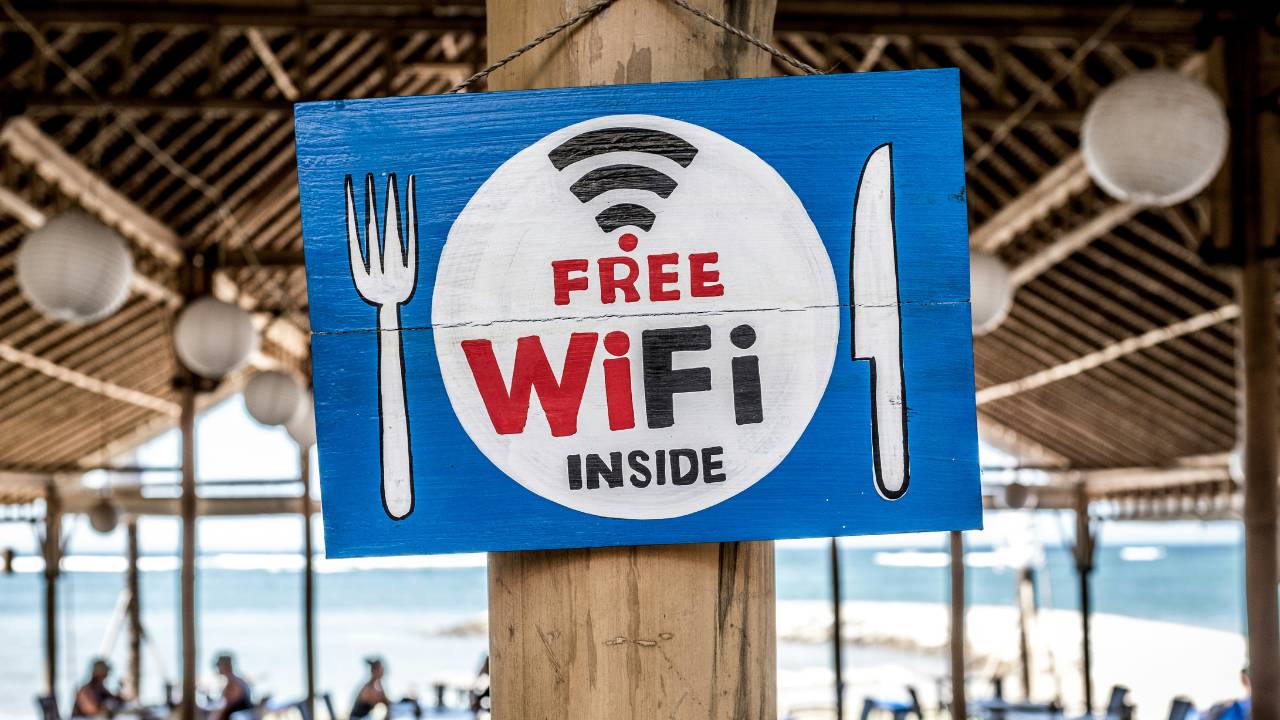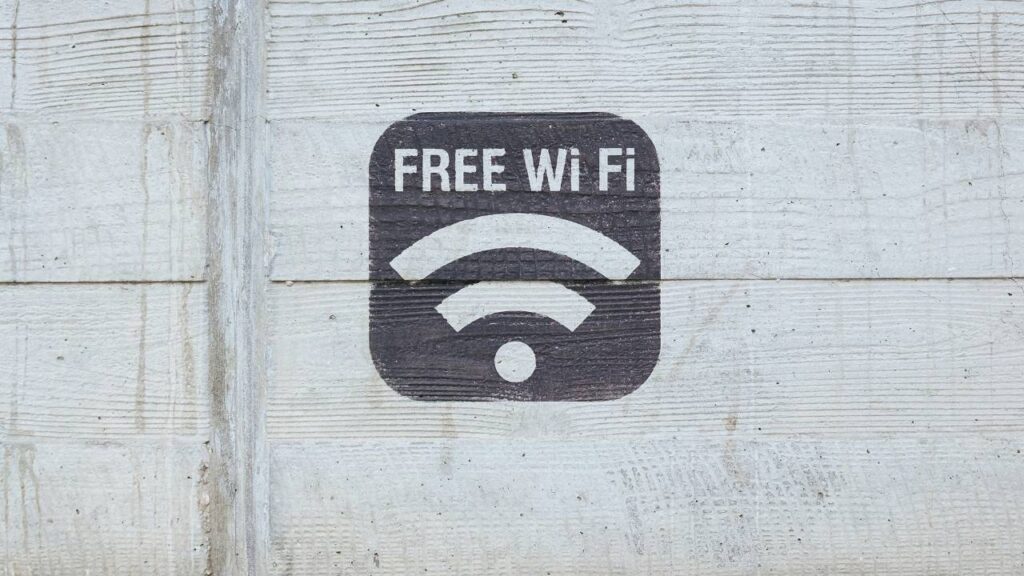
When you connect to public Wi-Fi, you may enjoy the convenience of free internet access, but it’s important to be aware of the risks that come with it. Public Wi-Fi networks, often found in cafes, airports, and hotels, are not always secure. Since these networks are usually open or use shared passwords, they can be easily exploited by cybercriminals. These bad actors may intercept your data, gaining access to your personal information, passwords, and even your financial details if you’re not careful.
Ensuring your safety online requires a certain level of vigilance, especially when using public internet services. Unlike private Wi-Fi networks, which are typically protected with a unique password and encryption, public Wi-Fi is less likely to be encrypted. This means that information sent over these networks can potentially be accessed by others. It’s vital to be mindful of the types of activities you perform on these networks. Checking email or browsing news sites is one thing, but entering sensitive data or accessing bank accounts could expose you to unnecessary hazards.
To protect yourself while using public Wi-Fi, it’s advised to use a virtual private network (VPN), which encrypts your internet connection and shields your data from prying eyes. Be cautious about the information you share while connected to a public network, and keep an eye out for any suspicious activity. Always ensure that the websites you visit use HTTPS, which provides an additional layer of security. By staying informed and taking proactive steps, you can significantly lower the risks associated with public Wi-Fi and enjoy a safer online experience.
Understanding Public Wi-Fi Networks
When you connect to public Wi-Fi, you’re accessing a network that makes the Internet available for free or for a fee, typically in populated areas. This convenience allows you to stay connected on the go.
Defining Public Wi-Fi
Public Wi-Fi is a wireless network that allows you to access the internet without using your mobile data. It’s usually provided by establishments to attract customers or by public sectors to enhance city services. Such networks are often less secure than your private home Wi-Fi because they may not employ robust encryption protocols.
Common Public Wi-Fi Hotspots
You’ll find public Wi-Fi hotspots in various locations such as coffee shops, airports, hotels, and malls. These places offer Wi-Fi to customers as a courtesy, often under a network named after the establishment. While convenient, these networks can also be a target for cybercriminals looking to intercept your data.
How Public Wi-Fi Works
Public Wi-Fi works similarly to your home network, but it operates on a larger scale and is generally accessible to many users at once. When you select a public Wi-Fi network, your device establishes a wireless connection to a router that’s linked to the internet. The range and strength of the signal can vary, but usually, it’s strong enough to cover the premises of the hotspot.
Security Risks Associated with Public Wi-Fi

When you connect to public Wi-Fi networks, you’re potentially exposing your device to several security risks. From unencrypted connections that enable data snooping to rogue access points that mimic legitimate hotspots, understanding these risks is key to protecting your personal information.
Unencrypted Networks and Sniffing
Public Wi-Fi networks often use unencrypted connections, which do not protect data transmitted over the network. This leaves your online activities vulnerable to sniffing, where hackers can capture and view your data packets. To mitigate this risk, avoid transmitting sensitive information and consider using a VPN for encryption.
Man-in-the-Middle Attacks
Man-in-the-middle attacks occur when a hacker intercepts communications between you and the internet, aiming to steal or manipulate your data. Always verify the authenticity of a Wi-Fi network and look for HTTPS in your browser’s address bar to ensure a more secure connection.
Malware Distribution
Hackers may use public Wi-Fi to distribute malware. Once infected, your device can be compromised, leading to data theft. Ensure your device’s operating system and antivirus software are up to date to defend against these threats.
Rogue Access Points
Rogue access points are malicious hotspots set up by hackers that mimic legitimate networks. Connecting to one can give hackers direct access to your device. Be cautious and connect only to official hotspots, often confirmed by venue staff or signage.
Protecting Personal Information

When you use public Wi-Fi, your personal information is at risk. Employ these strategies to safeguard your data.
Importance of VPN Use
Virtual Private Network (VPN) provides a secure tunnel for your internet activities. When you connect to a VPN, your data is encrypted, making it difficult for cybercriminals to access your personal information. Ensure you use a reputable VPN service on your devices to protect sensitive details such as credit card information.
Secure Connections and HTTPS
Always verify that the website you’re visiting uses HTTPS, indicated by a padlock symbol in the browser’s address bar. This means the site encrypts data sent and received, offering a layer of protection for your personal information.
Two-Factor Authentication
By enabling Two-Factor Authentication (2FA) on your online accounts, you add an extra security layer. Even if a hacker obtains your password, they would need the second form of verification to access your account.
Avoiding Sensitive Transactions
Refrain from conducting transactions that involve sensitive information on public Wi-Fi. This includes online shopping or banking, where your credit card information could be compromised. If necessary, use a trusted VPN or your personal data network.
Best Practices for Using Public Wi-Fi Safely
When you’re travelling and need to connect to public Wi-Fi, prioritise your safety by adjusting your device settings and using security software. These steps help you protect your personal information from threats.
Device Security Settings
Ensure your operating system is up-to-date to benefit from the latest security patches. Always customise your security settings before connecting to public networks:
- Firewall – Enable your firewall to block unauthorised access.
- Disable File Sharing – Turn off file sharing in your system preferences or control panel to prevent data exposure.
Disabling Auto-Connect
Prevent your device from automatically connecting to potentially unsafe Wi-Fi networks:
- Go to your Wi-Fi settings.
- Look for an option named something like ‘Auto-Connect’ or ‘Ask to Join Networks’.
- If found, turn this setting off to maintain control over your network choices.
Using Antivirus Software
Antivirus software is crucial for defending against malware and other online threats:
- Select a reputable antivirus program – Choose one that offers real-time protection and regular updates.
- Run frequent scans – Schedule regular scans to detect and isolate threats promptly.
By strictly adhering to these practices, you can greatly reduce your risk while using public Wi-Fi networks.
Implications for Business Owners and Government

As a business owner (especially the one harnessing the advantages of cloud computing), offering public Wi-Fi can attract more customers due to the added convenience. Yet, it’s vital to understand the attendant security risks. Cyberattacks can compromise your customers’ or your own sensitive data, leading to a loss of trust and potential legal repercussions.
- Security Protocols – Implementing robust security protocols is crucial to safeguard user data against cybercriminals.
- Regular Updates – Keep your Wi-Fi systems updated to mitigate vulnerabilities.
The government, on your end, plays a pivotal role in regulating public Wi-Fi usage. Establishing guidelines for secure Wi-Fi provision protects citizens and supports business integrity.
- Legislation – Enact laws requiring businesses to maintain a certain level of security to combat cyberattacks.
- Public Awareness Campaigns – Educate citizens on the risks of public Wi-Fi and safe browsing practices.
| Stakeholder | Responsibility | Potential Risk |
| Business Owners | Secure network, educate users | Data breach, lawsuits |
| Government | Regulation, public education | National security risk |
As someone responsible for a network, you should consider how your Wi-Fi service might inadvertently become a gateway for cybercriminals to access users’ personal information. Taking necessary actions to secure public Wi-Fi hotspots can prevent such incidents. If you’re unsure about doing this on your own, consider hiring IT professionals.
Your duty extends to ensuring that any public Wi-Fi under your jurisdiction is fortified against misuse. This includes but is not limited to encrypting data, utilizing firewalls, and monitoring for unauthorised access. By being proactive, you secure not just your interests, but also contribute to national cyber security efforts.

